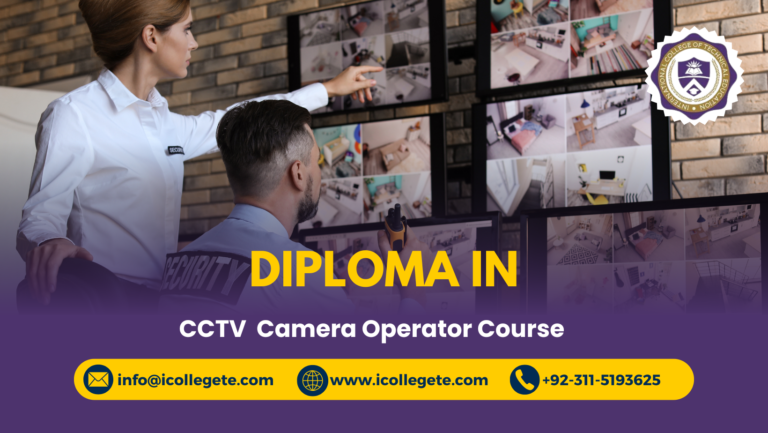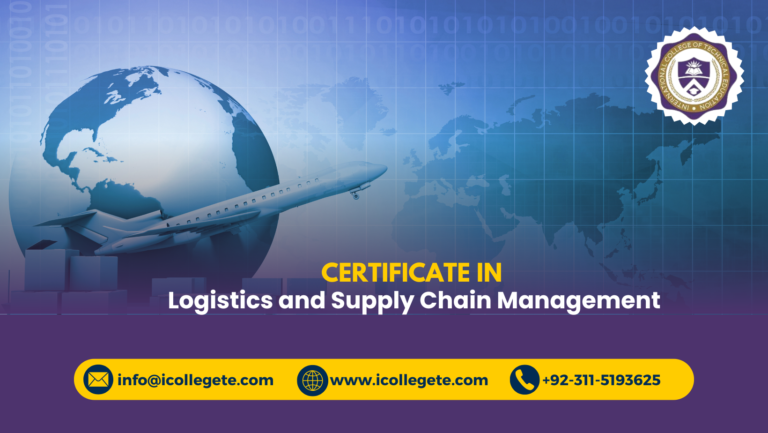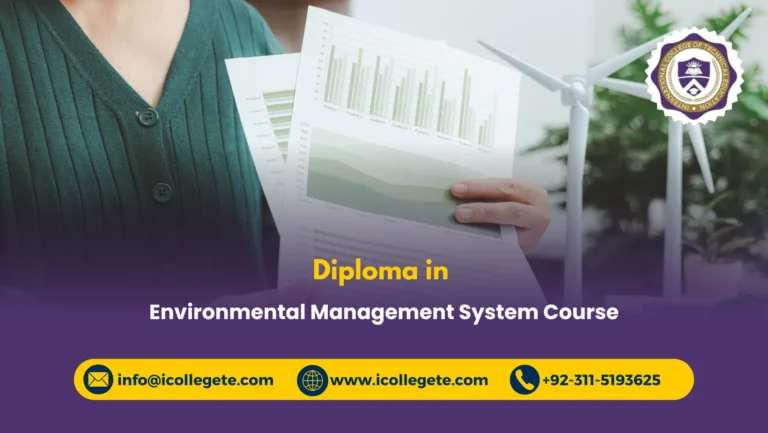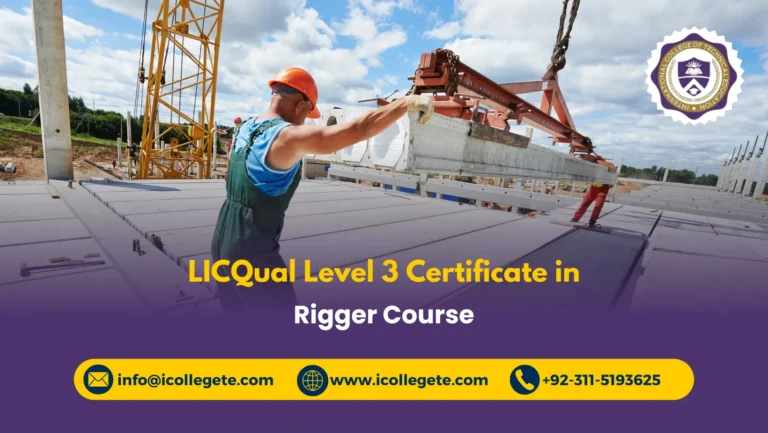Step into the world of industrial inspection and quality control with the QA/QC Piping Level 3 Course in Rawalpindi, a foundational training program designed for individuals seeking entry into piping inspection roles across construction, oil & gas, and manufacturing sectors. QA/QC Piping Level 3 Course in Rawalpindi introduces learners to the essential principles of piping systems, inspection techniques, and quality assurance protocols used in real-world projects.
Tailored for beginners and early-career technicians, the Level 3 course focuses on practical knowledge and industry-relevant skills. Participants will learn how to read basic engineering drawings, understand piping components, and apply visual inspection methods. The QA/QC Piping Level 3 Course in Rawalpindi also covers introductory non-destructive testing (NDT) concepts, welding basics, and documentation practices that support compliance and safety.
Delivered through structured modules and hands-on sessions, the QA/QC Piping Level 3 Course in Rawalpindi emphasizes clarity, accuracy, and procedural discipline. Learners will gain exposure to inspection tools, reporting formats, and standard operating procedures that form the backbone of QA/QC operations. By the end of the QA/QC Piping Level 3 Course in Rawalpindi, participants will be able to assist senior inspectors, contribute to quality documentation, and support project teams in maintaining installation standards.
Whether you’re starting your career or transitioning from a general technical role, the QA/QC Piping Level 3 Course in Rawalpindi offers a solid foundation for growth in the industrial quality control field. QA/QC Piping Level 3 Course in Rawalpindi the first step toward becoming a trusted professional in piping inspection and compliance.
Course Overview
The QA/QC Piping Level 3 Course in Rawalpindi is an introductory-level training program designed to build essential skills in piping inspection and quality control. Structured into six focused study units, the QA/QC Piping Level 3 Course in Rawalpindi offers a practical pathway for learners to understand the basics of industrial piping systems and inspection procedures.
Participants begin by exploring the core components of piping installations, including materials, fittings, and layout principles. The QA/QC Piping Level 3 Course in Rawalpindi then introduces basic engineering drawings, visual inspection techniques, and introductory welding standards. Each unit is designed to build confidence in handling inspection tasks, documenting findings, and supporting compliance efforts in field environments.
QA/QC Piping Level 3 Course in Rawalpindi is ideal for matric and intermediate graduates, entry-level technicians, and individuals seeking to enter the QA/QC profession. It provides the technical grounding needed to assist in inspection activities, understand quality requirements, and contribute to safe and compliant project execution. With growing demand for skilled QA/QC personnel in Pakistan’s industrial and infrastructure sectors, this Level 3 qualification opens doors to further specialization and career advancement. By completing QA/QC Piping Level 3 Course in Rawalpindi all six study units, learners gain the readiness to work under supervision, support documentation processes, and begin their journey in industrial quality assurance.
Course Study Units
- Introduction to Piping Systems and Components
- Basics of Engineering Drawings and Isometrics
- Visual Inspection Techniques and Tools
- Fundamentals of Welding and Joint Types
- Introduction to Non-Destructive Testing (NDT)
- Quality Documentation and Reporting Basics
Learning Outcomes for this course
Understanding Basic Piping Systems
- Identify common piping components such as elbows, tees, flanges, and valves
- Understand the function and layout of industrial piping systems
- Recognize different piping materials and their applications
- Learn basic terminology used in piping installations
- Understand the importance of proper alignment and support
- Observe piping connections and joint types during field visits
- Build awareness of piping system safety and operational standards
Reading Basic Engineering Drawings
- Interpret simple piping isometric and layout drawings
- Identify symbols, dimensions, and flow directions
- Understand drawing scales and annotations
- Trace piping routes and connections from diagrams
- Relate drawings to actual site installations
- Support documentation of minor field changes
- Communicate drawing details with supervisors and team members
Applying Visual Inspection Techniques
- Perform basic visual checks on piping installations
- Identify surface defects such as cracks, corrosion, and misalignment
- Use basic inspection tools like measuring tape and gauges
- Record observations in inspection logs and checklists
- Understand visual acceptance criteria for piping components
- Assist senior inspectors during field inspections
- Promote safe and accurate inspection practices
Introduction to Welding and Joint Types
- Recognize common welding methods used in piping fabrication
- Identify weld joint types such as butt, fillet, and socket welds
- Understand basic welding symbols and terminology
- Observe welding activities and safety precautions
- Learn about weld defects and their visual indicators
- Support documentation of welding activities
- Build foundational knowledge for future welding inspection training
Basics of Non-Destructive Testing (NDT)
- Understand the purpose and types of NDT methods
- Learn basic principles of VT, PT, and MT techniques
- Observe NDT procedures during practical sessions
- Recognize indications and reportable defects
- Support NDT technicians with documentation and coordination
- Understand safety protocols during NDT operations
- Build readiness for advanced NDT training
Introduction to Quality Documentation
- Learn to fill out basic inspection forms and checklists
- Record material details and inspection findings accurately
- Understand the role of documentation in QA/QC processes
- Support preparation of reports for supervisors and clients
- Maintain organized records for project traceability
- Assist in compiling documentation for audits and reviews
- Promote consistency and clarity in quality records
Entry Requirements for this course
- Age Applicants must be at least 18 years old. This ensures they are legally eligible for industrial training and capable of handling basic inspection responsibilities.
- • Education Minimum education requirement is matriculation (Grade 10). Candidates with intermediate or technical backgrounds will find it easier to grasp course concepts.
- • Experience No prior experience is required. The course is designed for beginners, although basic familiarity with construction or mechanical work is helpful.
- • Language Proficiency Basic reading and writing skills in English or Urdu are essential. Learners must be able to understand instructions, fill out forms, and communicate observations.
- • Physical Fitness Applicants should be physically fit to participate in site visits and handle basic inspection tools. Field activities may involve standing, climbing, or working outdoors.
- • Technical Interest Interest in engineering, fabrication, or inspection processes is recommended. Learners should be curious and willing to engage with technical content.
- • Safety Awareness Candidates must be willing to follow safety protocols and wear protective gear during practical sessions. Awareness of basic safety practices is important.
- • Commitment to Learning Regular attendance and active participation are required. Learners must be motivated to complete assignments and engage in both classroom and field training.
Course Benefits of this course
Foundation for Industrial QA/QC Careers
- Gain essential knowledge of piping systems and inspection basics
- Build confidence in handling technical tasks under supervision
- Understand the role of QA/QC in industrial projects
- Learn to identify common piping components and materials
- Develop awareness of quality standards and procedures
- Prepare for entry-level roles in construction and fabrication
- Support senior inspectors with documentation and field tasks
- Begin a structured career path in industrial quality control
- Establish readiness for advanced QA/QC training
Practical Exposure to Inspection Tools
- Learn to use basic measuring instruments and gauges
- Observe inspection procedures during site visits and workshops
- Understand the function of visual inspection tools
- Record inspection findings using standard formats
- Support tool handling and maintenance under guidance
- Build familiarity with field equipment and safety gear
- Practice inspection techniques in simulated environments
- Develop hands-on skills for real-world applications
- Improve accuracy and attention to detail
Introduction to Engineering Drawings
- Understand basic piping isometrics and layout diagrams
- Identify symbols, dimensions, and flow directions
- Relate drawings to actual piping installations
- Support drawing interpretation during inspections
- Learn to trace routes and connections visually
- Communicate drawing details with team members
- Build confidence in reading technical documents
- Prepare for advanced drawing analysis in future courses
- Enhance spatial understanding of piping systems
Awareness of Welding and Joint Types
- Recognize common welding methods used in piping fabrication
- Identify basic weld joint types and configurations
- Understand visual indicators of weld quality
- Observe welding activities and safety practices
- Learn terminology used in welding inspection
- Support documentation of welding processes
- Build foundational knowledge for future welding QA/QC roles
- Promote safe and compliant welding observations
- Understand the importance of weld integrity
Introduction to Non-Destructive Testing (NDT)
- Learn the purpose and types of NDT methods
- Understand basic principles of VT, PT, and MT techniques
- Observe NDT procedures during practical sessions
- Recognize reportable indications and defect types
- Support NDT documentation and coordination
- Build awareness of NDT safety protocols
- Prepare for future specialization in NDT
- Understand how NDT supports quality assurance
- Gain exposure to inspection technologies
Documentation and Reporting Skills
- Learn to fill out inspection forms and checklists
- Record material and inspection details accurately
- Understand the role of documentation in QA/QC
- Support preparation of reports for supervisors
- Maintain organized records for traceability
- Promote clarity and consistency in documentation
- Assist in compiling files for audits and reviews
- Build habits of structured recordkeeping
- Contribute to transparent project workflows
Safety Awareness and Field Readiness
- Understand basic safety protocols in inspection environments
- Learn to use personal protective equipment (PPE) correctly
- Observe safe practices during site visits and inspections
- Identify potential hazards in piping systems
- Support safety compliance during QA/QC tasks
- Promote awareness of industrial safety standards
- Coordinate with safety teams during practical sessions
- Build readiness for field-based roles
- Develop responsibility in safety-conscious environments
Career Entry and Progression Pathways
- Qualify for entry-level QA/QC roles in industrial sectors
- Build a foundation for Level 6 and advanced certifications
- Increase employability in construction and manufacturing projects
- Support career transition from general technician to inspection roles
- Gain recognition as a trained QA/QC assistant
- Access job opportunities in Pakistan and abroad
- Prepare for roles in fabrication yards and project sites
- Align skills with industry expectations
- Establish a long-term career trajectory in quality control
Teamwork and Communication Skills
- Collaborate with inspectors, engineers, and site staff
- Communicate inspection findings clearly and professionally
- Support coordination between field and documentation teams
- Learn to follow instructions and report accurately
- Build interpersonal skills for team-based environments
- Participate in group tasks and practical exercises
- Develop confidence in technical discussions
- Promote effective communication in QA/QC workflows
- Strengthen workplace relationships through structured interaction
Local and Global Relevance
- Apply skills in Pakistan’s growing industrial and infrastructure sectors
- Align training with international QA/QC standards
- Support migration goals with recognized certification
- Work with multinational companies and joint ventures
- Understand global inspection practices and expectations
- Build adaptability across diverse work environments
- Enhance employability in overseas inspection roles
- Contribute to quality assurance in global supply chains
- Stay competitive in international technical job markets
Who Should Enroll in this course
- Matric and Intermediate Graduates Students who have completed Grade 10 or 12 and want to enter the technical workforce with a practical, industry-relevant skillset.
- Fresh Technical Diploma Holders Individuals with DAE in mechanical, civil, or petroleum technology seeking foundational QA/QC training to complement their qualifications.
- Entry-Level Technicians in Construction Workers involved in piping installations who want to understand inspection procedures and quality standards.
- Fabrication Yard Helpers and Assistants Personnel assisting in welding and pipe fitting who wish to formalize their skills and grow into inspection roles.
- General Laborers Seeking Career Growth Individuals with basic site experience aiming to transition into structured technical roles with better pay and stability.
- Unemployed Youth with Technical Interest Job seekers who are technically inclined and want to pursue a career in industrial quality control.
- Helpers in Oil & Gas Projects Support staff working in refineries or gas plants who want to understand the basics of piping QA/QC.
- Safety Assistants Seeking Cross-Training HSE personnel who want to expand their understanding of inspection and quality documentation.
- Junior Welders and Pipe Fitters Tradespeople who want to learn how their work is inspected and documented for compliance.
- Vocational Training Graduates Learners from trade schools who want to specialize in piping inspection and quality assurance.
- QA/QC Interns and Trainees Entry-level staff in QA/QC departments who need structured training to advance professionally.
- Individuals Preparing for Gulf Jobs Candidates targeting overseas employment where basic QA/QC certification is a hiring requirement.
- Site Clerks and Document Controllers Administrative staff who manage inspection records and want to understand field procedures.
- Technical Support Staff in Engineering Firms Employees assisting engineers who want to build inspection knowledge for better coordination.
- Freelancers Offering Industrial Services Independent workers who want to add QA/QC capabilities to their service portfolio.
- Small Contractors and Subcontractors Business owners who want to ensure their work meets client quality expectations.
- Maintenance Technicians in Industrial Plants Workers involved in piping repairs who need to understand inspection criteria and documentation.
- Civil Technicians Working on Infrastructure Projects Professionals involved in utility installations who want to understand piping QA/QC basics.
- Individuals Interested in Technical Compliance Learners who want to contribute to quality assurance and regulatory documentation in industrial settings.
- Anyone Seeking a Stable Technical Career Path Motivated individuals looking for a reliable, skill-based profession with long-term growth potential.
Future Progression of this course
Advancement to QA/QC Piping Level 6
- Enroll in Level 6 for advanced inspection techniques and standards
- Learn welding inspection and non-destructive testing in depth
- Understand international codes like ASME, API, and ASTM
- Prepare for supervisory roles in QA/QC departments
- Gain hands-on experience with complex piping systems
- Build expertise in documentation and compliance audits
- Qualify for higher-paying roles in industrial projects
- Strengthen career prospects in oil & gas and power sectors
- Position yourself for long-term technical leadership
Welding Inspection and Certification Path
- Learn to inspect weld joints and identify defects
- Understand welding procedures and welder qualifications
- Apply visual and dimensional inspection techniques
- Support documentation of welding activities
- Prepare for certification as a welding inspector
- Work in fabrication yards and construction sites
- Build credibility in welding QA/QC roles
- Align with industry standards like AWS and ASME
- Expand into specialized welding inspection services
Non-Destructive Testing (NDT) Training
- Advance into NDT Level I and II certifications
- Learn UT, RT, MT, PT, and VT techniques
- Support NDT teams in field and lab environments
- Document inspection results and defect analysis
- Understand equipment calibration and safety protocols
- Work in testing labs and industrial inspection firms
- Build specialization in high-demand NDT roles
- Contribute to quality assurance in critical systems
- Prepare for international NDT job markets
Quality Documentation and Audit Support
- Develop skills in inspection reporting and recordkeeping
- Maintain traceability of materials and procedures
- Prepare documentation for client and regulatory audits
- Organize QA/QC files for project handover
- Support digital documentation systems
- Align records with ISO and project standards
- Assist in internal quality reviews
- Promote transparency and accountability
- Build expertise in structured documentation
Field Inspection and Site Coordination
- Conduct inspections during piping installation and fabrication
- Coordinate with engineers and site supervisors
- Monitor compliance with inspection schedules
- Identify and report non-conformance issues
- Support corrective actions and follow-up inspections
- Document field observations accurately
- Promote safe and efficient inspection practices
- Build readiness for site-based QA/QC roles
- Enhance teamwork and communication on projects
Entry into Oil & Gas QA/QC Roles
- Work on pipelines, refineries, and gas processing units
- Apply inspection techniques to high-pressure systems
- Understand safety and compliance in hazardous environments
- Support shutdown and turnaround QA/QC operations
- Document inspections for regulatory review
- Coordinate with multidisciplinary teams
- Build specialization in upstream and downstream projects
- Align with international oil & gas standards
- Prepare for long-term roles in energy sector QA/QC
Industrial Plant and Utility QA/QC
- Inspect piping systems in power plants and manufacturing units
- Monitor installation of steam, water, and chemical lines
- Apply quality standards for utility-grade systems
- Support commissioning and operational readiness inspections
- Document quality checks for infrastructure projects
- Coordinate with mechanical and electrical teams
- Ensure compliance with national codes and safety standards
- Build expertise in plant-based QA/QC operations
- Contribute to efficient and safe utility management
Freelance and Consultancy Opportunities
- Offer QA/QC services to contractors and small firms
- Build a portfolio of inspection projects and reports
- Market services to fabrication yards and industrial clients
- Provide documentation support for audits and certifications
- Deliver training workshops for junior technicians
- Develop templates and tools for quality documentation
- Expand into niche areas like welding audits or NDT coordination
- Establish a consultancy brand in industrial QA/QC
- Scale operations with remote and on-site service models
Technical Sales and Support Roles
- Transition into technical sales for QA/QC equipment
- Demonstrate inspection tools and software to clients
- Prepare proposals and documentation for quality solutions
- Support client onboarding and training
- Collaborate with engineering and procurement teams
- Build relationships with industrial buyers
- Provide after-sales support and troubleshooting
- Align product offerings with client needs
- Grow into business development roles
International Employment Pathways
- Align skills with global QA/QC standards and job requirements
- Prepare for certifications like CSWIP, BGAS, or API 570
- Build documentation portfolios for overseas job applications
- Connect with recruiters and inspection firms abroad
- Gain cultural readiness for international roles
- Serve diverse environments across regions and industries
- Increase earning potential through global mobility
- Contribute to international infrastructure projects
- Position yourself for success in global QA/QC careers
Conclusion
The QA/QC Piping Level 3 Course in Rawalpindi is not just a stepping stone—QA/QC Piping Level 3 Course in Rawalpindi a strategic entry into a profession where precision, safety, and accountability define success. QA/QC Piping Level 3 Course in Rawalpindi cultivates a mindset of responsibility and attention to detail, preparing learners to contribute meaningfully to industrial projects from day one.
What makes QA/QC Piping Level 3 Course in Rawalpindi valuable is its ability to transform raw interest into structured capability. QA/QC Piping Level 3 Course in Rawalpindi doesn’t assume prior expertise—QA/QC Piping Level 3 Course in Rawalpindi builds it. Learners begin to see piping systems not just as mechanical assemblies, but as critical components of operational integrity. This shift in perspective is what sets future professionals apart.
The QA/QC Piping Level 3 Course in Rawalpindi also instills habits that extend beyond inspection—discipline in documentation, clarity in communication, and consistency in execution. These traits are foundational to any technical career and serve as a launchpad for future specialization.
For those seeking a reliable, skill-based career path with global relevance, QA/QC Piping Level 3 Course in Rawalpindi offers more than knowledge—it offers direction. It’s designed for learners who want to grow, adapt, and eventually lead in environments where quality is non-negotiable. Completing QA/QC Piping Level 3 Course in Rawalpindi means you’re not just ready to work—you’re ready to be trusted.





